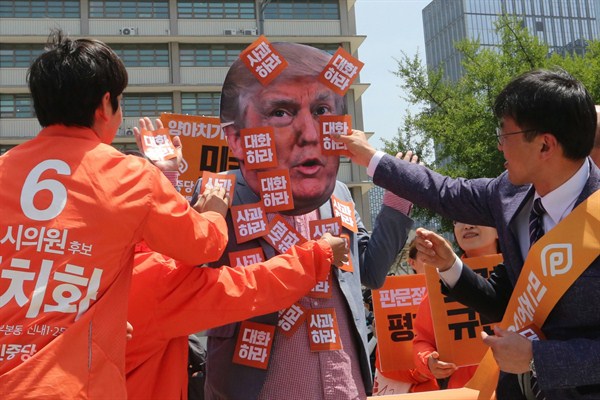After the initial public euphoria about an imminent breakthrough in their decades-long crisis with North Korea, South Koreans who work professionally on foreign and national security policy are taking a more strategic and sober view of recent events. Many worry about the consequences of a change in their relationship with the United States, while others see important economic and political opportunities ahead.
I just returned from a week of meetings in Seoul and Incheon with scholars from universities, government agencies and think tanks, as part of a delegation from George Mason University’s Schar School of Policy and Government. I came away with a more textured view of the mood in South Korea and how experts there calibrate the likely results of the flurry of diplomatic encounters in the region.
For the most part, South Korean experts, like their American counterparts, look to history and see poor prospects for sustainable progress in U.S.-North Korea relations ahead of the on-again, off-again summit between President Donald Trump and North Korean leader Kim Jong Un—whether around the issue of denuclearization or a genuine peace or unification of the Korean Peninsula. With their own deep insight into the peculiar political culture of the North, these experts are generally of the view that the regime in Pyongyang cannot afford to unilaterally denuclearize without threatening its own survival. Promises made by the mercurial Trump administration are also not seen as permanent or reliable American positions. This symmetry of assumptions—that the North will most likely expect to keep its nuclear weapons, and that the U.S. will offer something short of the needed security assurances—makes the Singapore summit more theater than strategic breakthrough.

